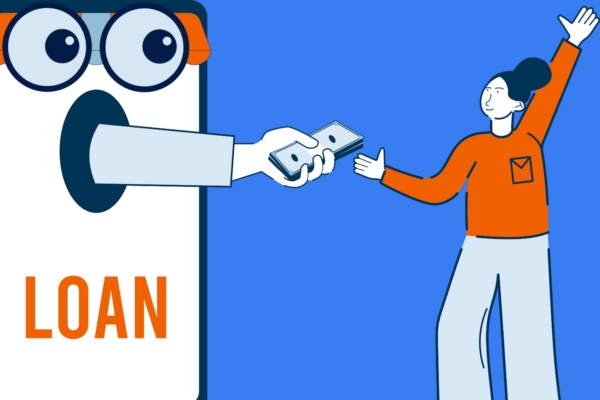
How to Get a Small Business Loan

Getting a small business loan can be a critical step for entrepreneurs looking to start, grow, or expand their businesses. Whether you need working capital, want to purchase inventory, or want to expand your operations, understanding how to get a small business loan is vital to growing your business. Although obtaining a loan might seem daunting, being well-prepared and informed can significantly increase your chances of securing funding. In this guide, we’ll walk you through the steps to apply for a small business loan, the different types of loans available, and what lenders typically look for.
1. Understand Your Financing Needs
Before applying for a small business loan, it’s essential to determine why you need the funds. Understanding your specific financing needs will help you choose the right type of loan and lender. Common reasons for obtaining a loan include:
- Working Capital: Funds used for daily operations and managing cash flow.
- Expansion: To open a new location or invest in new equipment.
- Inventory Purchase: To stock up on inventory for peak seasons.
- Debt Refinancing: To consolidate existing high-interest debts.
Clearly identifying your purpose for the loan will help you articulate your needs to potential lenders, as well as choose the right loan product.
2. Explore Different Types of Small Business Loans
There are various types of small business loans available, so once you understand your financing needs, it’s easier to evaluate which type of loan will best fit your purposes. Each loan type has its specific use case, terms, and benefits, making some options better suited to certain business needs than others. Some of the most common small business loan options include:
Term Loans
A term loan provides a lump sum of money that you repay over a fixed period, typically with a set interest rate. These loans are often used for specific, one-time expenses, such as purchasing equipment, expanding operations, or investing in real estate.
- Ideal For: Businesses needing a significant amount of capital for a specific purpose.
- Repayment: Fixed monthly payments over a predetermined period, which could range from one to 25 years.
- Benefits: Predictable repayment schedule and fixed interest rates that can simplify budgeting.
- Drawbacks: Requires good credit and substantial financial documentation. Some term loans may have prepayment penalties or require collateral.
SBA 7(a) Loan
Guaranteed by the Small Business Administration (SBA), these loans offer flexible terms and can be used for a variety of purposes, including working capital and equipment purchases. The SBA 7(a) loan is one of the most popular loan programs, as these loans are partially guaranteed by the SBA, which reduces the risk for lenders and makes it easier for small businesses to qualify.
- Ideal For: Working capital, equipment purchase, refinancing existing debt, or acquiring a business.
- Loan Amounts: Up to $5 million, with repayment terms ranging from 7 to 25 years, depending on the loan’s purpose.
- Benefits: Flexible terms, lower down payments, and longer repayment periods than many conventional loans.
- Drawbacks: The application process can be lengthy and requires comprehensive documentation, including tax returns, a business plan, and financial statements.
Business Line of Credit
A business line of credit works much like a credit card, providing access to a revolving credit line that you can draw from as needed. You only pay interest on the amount you draw, not on the total credit limit.
- Ideal For: Managing cash flow, covering seasonal fluctuations, or financing unexpected expenses.
- Repayment: Interest-only payments during the draw period, followed by principal and interest payments during the repayment period.
- Benefits: Flexible access to funds without the obligation to use the entire credit line. It can be reused as you repay the balance.
- Drawbacks: It can come with higher interest rates than term loans, and there may be fees associated with maintaining the line of credit.
Each loan type has its own set of benefits and drawbacks. It’s essential to consider the repayment terms, loan amounts, and interest rates associated with each to determine which one is right for your business.
3. Assess Your Eligibility
Lenders have specific criteria for approving small business loans, so it’s important to understand what they’re looking for. Common factors that may impact whether your small business is approved for a loan include:
- Credit History: Lenders will check both your personal credit and your business credit to assess your ability to repay the loan. A strong credit score can help you secure better interest rates and terms.
- Business Plan: A detailed business plan demonstrates to lenders that you have a clear strategy for growth and profitability.
- Financial Information: Lenders will require financial statements such as income statements, balance sheets, and cash flow statements. This information helps them evaluate your business’s financial health.
- Personal Guarantee: Some lenders may require a personal guarantee, meaning you will be personally responsible for repaying the loan if your business cannot.
- Collateral: Certain loans may require collateral, such as equipment or property, which can help reduce the lender’s risk.
Preparing these documents in advance will streamline the loan application process and increase your chances of approval.
4. Choose the Right Lender
Once you know what type of loan you need and understand your eligibility, it’s time to choose a lender. There are several options available, including:
- Traditional Banks: Offer a range of loan products but often have stricter eligibility criteria and longer approval times.
- SBA Lenders: These banks and financial institutions partner with the Small Business Administration to offer SBA-guaranteed loans, which typically have more favorable terms but require thorough documentation.
- Online Lenders: These lenders often have quicker approval processes and less stringent requirements but may charge higher interest rates.
- Credit Unions: Often have lower fees and interest rates, but you may need to be a member to qualify.
It’s important to shop around and compare loan programs, repayment terms, and interest rates from different lenders to find the best fit for your needs.
5. Prepare a Strong Loan Application
A well-prepared loan application is crucial to securing funding. Here are the key components you should include:
- Executive Summary: Briefly outline your business, its mission, and why you need the loan.
- Business Plan: Include detailed information about your business, market analysis, and financial projections.
- Financial Statements: Provide up-to-date financial documents that show your business’s performance and ability to repay the loan.
- Personal and Business Credit Reports: Be prepared to submit both personal and business credit reports for review.
- Collateral Information: If the loan requires collateral, include a detailed description and valuation of the assets you’re willing to pledge.
- Supporting Documentation: Tax returns, proof of business ownership, and other relevant documents should be organized and ready for submission.
Taking the time to prepare a comprehensive loan application demonstrates professionalism and readiness, increasing your chances of approval.
6. Submit Your Application and Await Approval
Once your application is ready, submit it to your chosen lender. The approval process varies by lender and loan type, but it typically includes:
- Initial Review: The lender will review your application and financial documents to assess your eligibility.
- Credit Check: The lender will perform an inquiry on your credit report to evaluate your creditworthiness.
- Underwriting: A more in-depth analysis where the lender assesses your financial situation, including your credit history, cash flow, and collateral.
- Final Decision: Based on their findings, the lender will either approve or deny your application.
If approved, you’ll receive a preapproval letter outlining the loan amounts, interest rates, and repayment terms.
7. Understand Your Loan Terms
Before accepting a loan offer, it’s crucial to understand all the terms and conditions, including:
- Interest Rates: Ensure you know whether the rates are fixed or variable and how they will affect your monthly payments.
- Repayment Terms: Understand the length of the loan term and the frequency of payments.
- Fees: Be aware of any origination fees, late fees, or prepayment penalties associated with the loan.
- Loan Covenants: Some loans come with specific conditions or covenants that you must adhere to throughout the loan term.
Reviewing these details carefully will help you make an informed decision and avoid any surprises down the road.
8. Use the Funds Wisely
Once you receive the loan, it’s essential to use the funds as intended. Misusing the loan can jeopardize your financial standing and make it harder to secure additional funding in the future. Keep detailed records of how the funds are spent and ensure that your financial management practices align with the goals outlined in your business plan.
Conclusion
Securing a small business loan is a significant step that requires careful planning and preparation. By understanding the different types of loans available, assessing your eligibility, and choosing the right lender, you can increase your chances of success. Remember to use the funds wisely to grow your business and achieve your financial goals.
Whether you’re looking to fund your business or need working capital to manage day-to-day operations, understanding how to get a small business loan is crucial. With the right preparation and strategy, you can secure the financing you need to take your business to the next level.
Looking for a Small Business Loan?
Amplify’s commercial lending team can help you find the right loan for your business!



